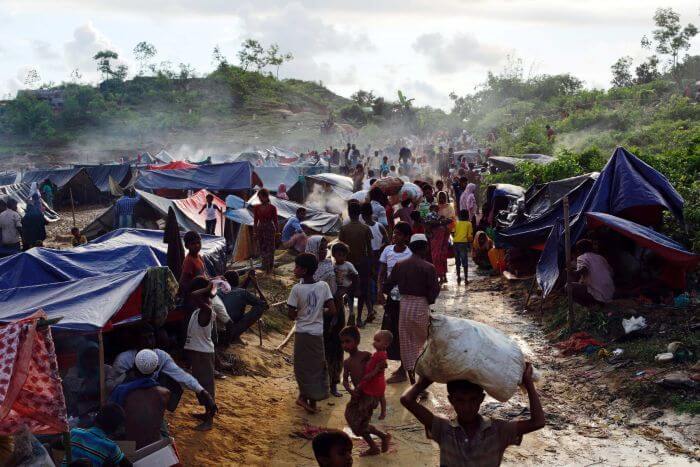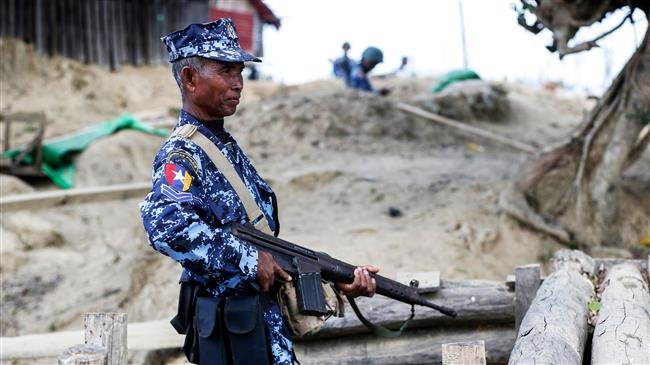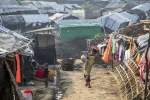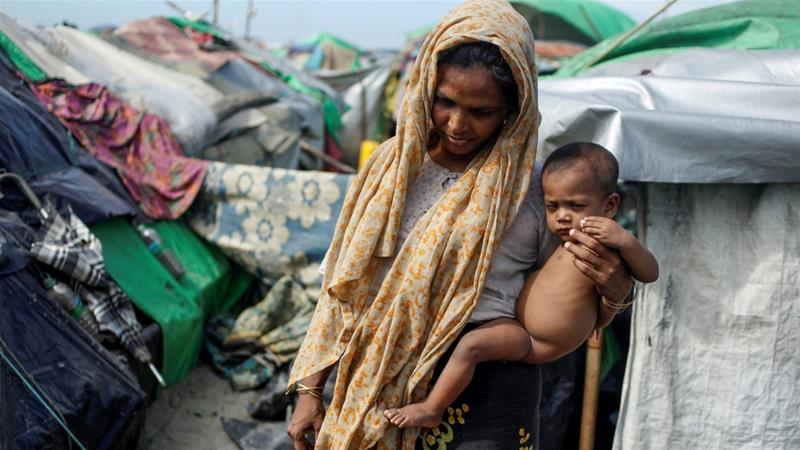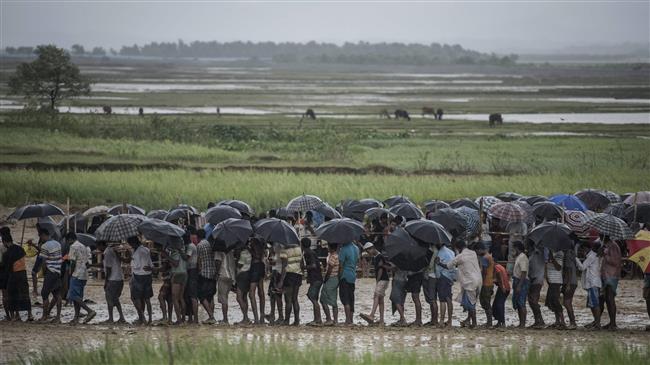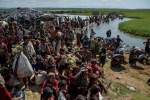The UN Refugee Agency (UNHCR) has taken on the task of issuing identification cards to Myanmar Rohingya over the age of 12 in the sprawling refugee camps of southernmost Bangladesh, a UN spokesman said on Friday.
Publish dateSaturday 7 July 2018 - 18:38
Story Code : 166680
AVA- The verification process, together with the Bangladesh government, of an estimated 900,000 Rohingya refugees is expected to take six months, said the deputy spokesman, Farhan Haq, at a briefing.
"Most of these people - well over 700,000 - fled since last August in what was one of the largest and fastest growing refugee emergencies in the region in decades," he said. "Biometric data, including eye scans and fingerprints as well as photographs, are being used to confirm individual identities for all refugees over the age of 12."
The UNHCR now says 720,000 of those refugees fled their homes since Aug. 25, 2017 in the face of alleged raping and killing by government and civilian militia in retaliation for deadly militant Rohingya attacks on police posts in Myanmar's northern Rakhine State.
The task of identifying and handing the cards to refugees will help to consolidate a unified database for the purposes of protection, identity management, documentation, provision of aid, and population statistics, he said.
"At the end of the process, refugees are provided with new identity cards," Haq said. "For many of the refugees, this will mark the first time they have possessed an individual identity document."
The absence of any such documentation has proved a problem for the Rohingya, an ethnic Muslim minority living in overwhelmingly Buddhist Myanmar and who have not been granted Myanmar citizenship, the UNHCR has said.
The credit card-size ID will carry not only their personal data and photograph, but also list where they say they lived in northern Rakhine State and hopefully help with their return home, the refugee agency said.
However, a UN Security Council diplomat -- a member of the panel recently visited refugee camps in the Cox's Bazar District of Bangladesh -- said the refugees are "too scared" to go home at the moment and most of them are expected to stay in Bangladesh for at least a year despite the hardship of living in tents during the monsoon season.
Already, thousands have been flooded out of their shelters by the lashing seasonal rains, the refugee agency said.
"Most of these people - well over 700,000 - fled since last August in what was one of the largest and fastest growing refugee emergencies in the region in decades," he said. "Biometric data, including eye scans and fingerprints as well as photographs, are being used to confirm individual identities for all refugees over the age of 12."
The UNHCR now says 720,000 of those refugees fled their homes since Aug. 25, 2017 in the face of alleged raping and killing by government and civilian militia in retaliation for deadly militant Rohingya attacks on police posts in Myanmar's northern Rakhine State.
The task of identifying and handing the cards to refugees will help to consolidate a unified database for the purposes of protection, identity management, documentation, provision of aid, and population statistics, he said.
"At the end of the process, refugees are provided with new identity cards," Haq said. "For many of the refugees, this will mark the first time they have possessed an individual identity document."
The absence of any such documentation has proved a problem for the Rohingya, an ethnic Muslim minority living in overwhelmingly Buddhist Myanmar and who have not been granted Myanmar citizenship, the UNHCR has said.
The credit card-size ID will carry not only their personal data and photograph, but also list where they say they lived in northern Rakhine State and hopefully help with their return home, the refugee agency said.
However, a UN Security Council diplomat -- a member of the panel recently visited refugee camps in the Cox's Bazar District of Bangladesh -- said the refugees are "too scared" to go home at the moment and most of them are expected to stay in Bangladesh for at least a year despite the hardship of living in tents during the monsoon season.
Already, thousands have been flooded out of their shelters by the lashing seasonal rains, the refugee agency said.
Source : خبرگزاری Afghan Voice Agency(AVA)
avapress.net/vdcg739qzak9334.5jra.html
Top hits
